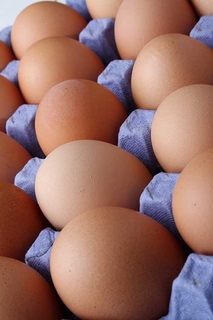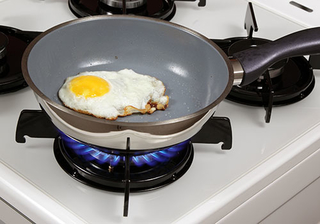Can You Get Salmonella From Eggs Over Easy
Eggs: you may like them sunny side up or over easy, but it's safer to eat eggs that are cooked well. Today some unbroken, clean, fresh shell eggs may contain Salmonella bacteria that can cause foodborne illness. To be safe, eggs must be properly handled, refrigerated and cooked.
How does Salmonella infect eggs?
Bacteria can be inside an uncracked, whole egg. Contamination of eggs may be due to bacteria within the hen's ovary or oviduct before the shell forms around the yolk and white. Salmonella doesn't make the hen sick. Eggs are washed and sanitized at the processing plant. The Centers for Disease Control estimates that 1 in every 20,000 eggs are contaminated with Salmonella. Persons infected with Salmonella may experience diarrhea, fever, abdominal cramps, headache, nausea and vomiting.
Who is at risk of illness?
No one should eat foods containing raw eggs. This includes "health food" milk shakes made with raw eggs, Caesar salad, Hollandaise sauce and any other foods like homemade mayonnaise, ice cream or eggnog made from recipes in which the egg ingredients are not cooked.
Salmonella can cause intestinal infections that can be serious (or even fatal). Young children, elderly and those who have a weakened immune system are at an especially high risk of foodborne illness.
What should I look for when buying eggs?
- Be sure eggs are clean and uncracked.
- Buy eggs that have been refrigerated. If there is any bacteria in the eggs, it will grow rapidly at room temperature.
How do you store shell eggs?
- Store in the refrigerator set at 40 F or below. Keep them in their carton and place them inside the refrigerator, not in the door. The refrigerator door is the warmest area of your refrigerator.
- Don't wash eggs because you remove the protective mineral oil coating and increase the potential for bacteria on the shell to enter the egg.
- Use eggs within 4 to 5 weeks from the day they are placed in the refrigerator. The "sell-by" date will usually expire during that length of time, but the eggs are safe to use.
- Don't keep eggs out of refrigeration. If eggs are left at room temperature for more than 2 hours, throw them out.
Don't wash eggs because you remove the protective mineral oil coating and increase the potential for bacteria on the shell to enter the egg.
How do you safely cook eggs?
Before cooking, wash your hands, utensils, equipment and work areas with hot, soapy water and wash again after contact with the eggs.
Hard-cooked eggs should be safe for everyone to eat. The American Egg Board recommends frying, scrambling, steaming or poaching eggs until both the yolk and the white are firm.
- Fried eggs - cook 2 to 3 minutes on each side, 4 minutes in a covered pan.
- Scrambled eggs - cook until firm throughout.
- Steamed hard cooked eggs with shells - place eggs in a steamer basket of boiling water, steam for 12-17 minutes. Cool under running water. Crack and peel.
- Poached eggs - 5 minutes over boiling water.
- Soft-cooked eggs - 7 minutes in the shell in boiling water.
- Egg mixtures such as egg bakes, quiches and casseroles are safe if they reach an internal temperature of 160 F.
Serving and storing cooked eggs
Serve your cooked eggs and egg dishes as soon as possible after cooking. If you plan to serve prepared or baked eggs at a later time, refrigerate and use within 3 to 4 days or freeze them for longer storage.
Hard-cooked eggs can spoil more quickly than raw eggs. After cooking, cool the hard-cooked eggs quickly under cold water or in ice water. Refrigerate and use them within 1 week.
Safe vs. unsafe recipes
- Homemade ice cream and eggnog can be made safely from a cooked egg-milk mixture. Heat it gently to 160 F on a food thermometer.
- Dry meringue shells are safe. So are divinity candy and 7-minute frosting, made by combining hot sugar syrup with beaten egg whites.
- Avoid icing recipes using uncooked eggs or egg whites.
- Meringue-topped pies are safe if baked at 350 F for about 15 minutes.
- Chiffon pies and fruit whips made with raw, beaten egg whites are risky. Instead, substitute pasteurized dried egg whites, whipped cream or a whipped topping.
- To make a recipe safe that specifies using eggs that aren't cooked, heat the eggs in a liquid from the recipe over low heat, stirring constantly, until the mixture reaches 160 F. Then combine it with the other ingredients and complete the recipe.
Decorating egg shells?
If you plan to empty eggshells for decorating, use the contents immediately in a cooked recipe or freeze them. Baked dishes such as casseroles, custards, cakes or breads are great ways to use these eggs. Read more about decorating eggs.
Reviewed in 2021
Source: https://extension.umn.edu/preserving-and-preparing/handling-eggs-prevent-salmonella



0 Response to "Can You Get Salmonella From Eggs Over Easy"
Enregistrer un commentaire